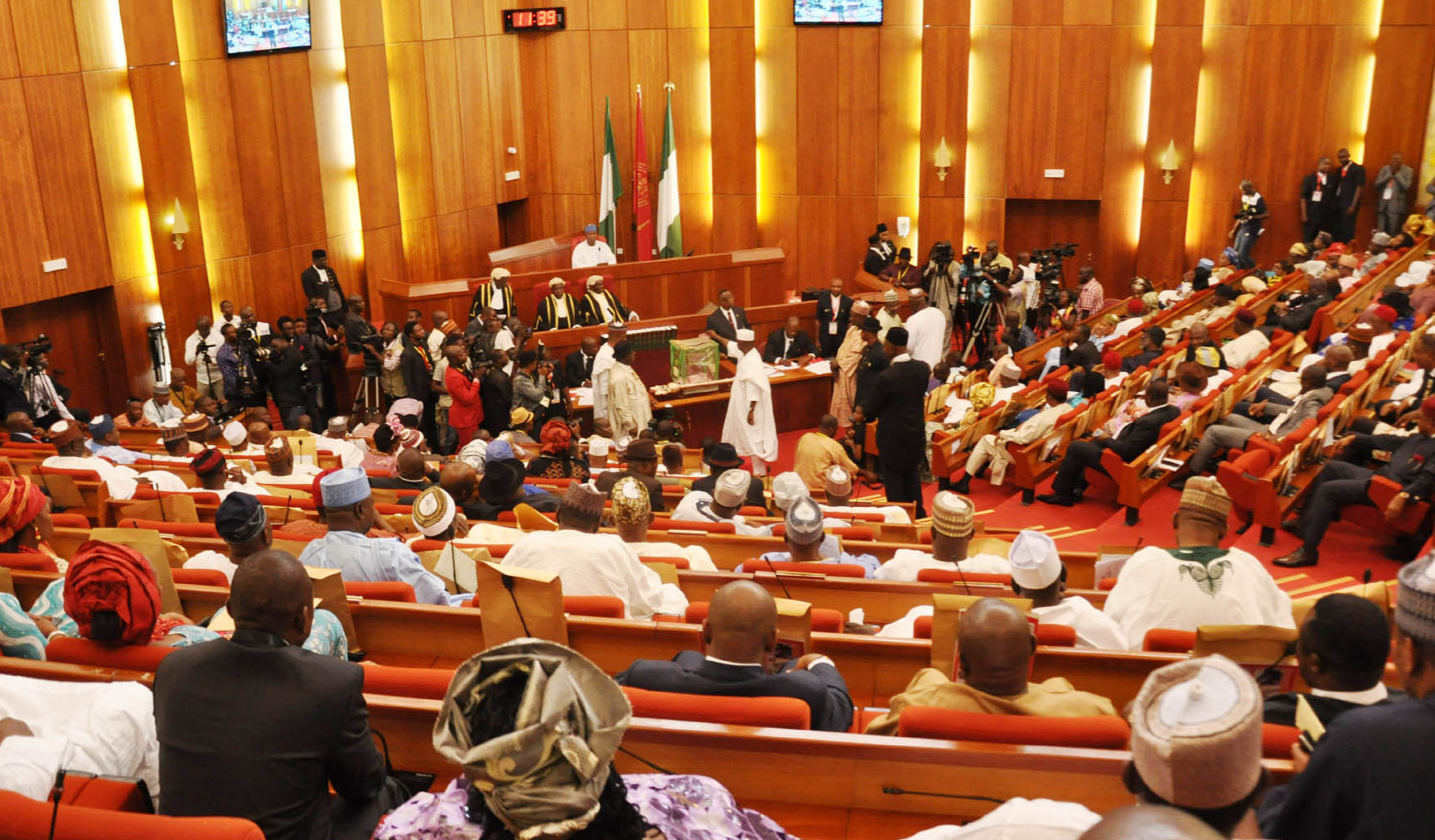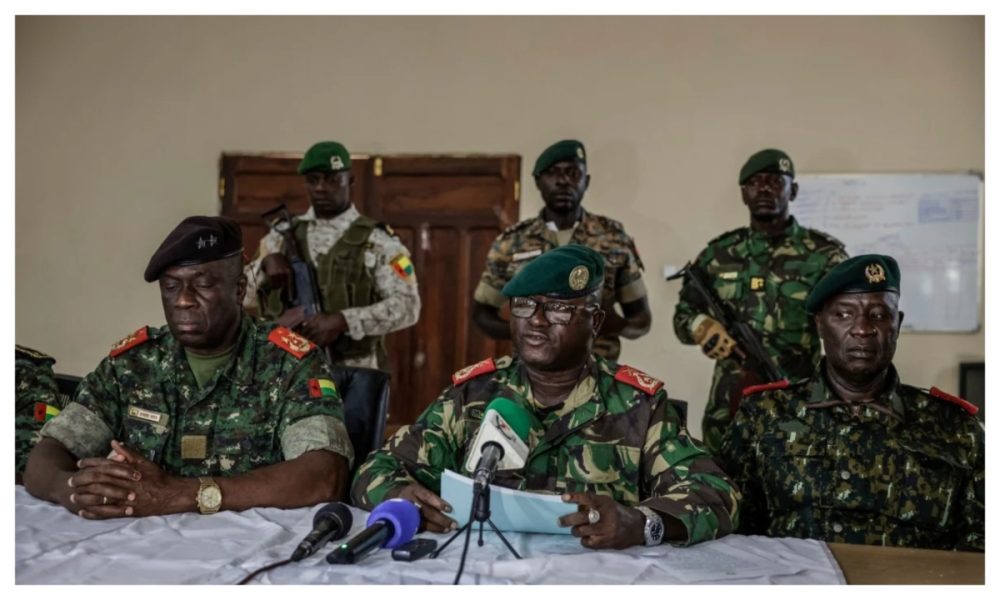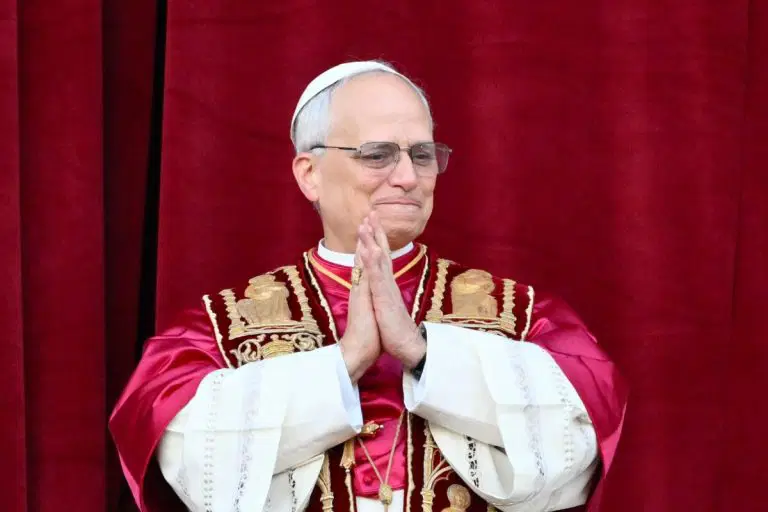Headline
Senate Proposes 376 New Agencies, Shuns Oronsaye Report

The Senate has proposed the establishment of 376 new agencies and institutions despite moves by the Federal Government to restructure the public service in line with the Steve Oronsaye Committee Report on Restructuring and Rationalisation of Federal Government Parastatals, Agencies and Commission.
The report recommended the scrapping or merging of some ministries, departments and agencies in order to reduce the cost of governance.
A white paper committee set up by the Federal Government to review the parastatals, agencies and commissions created since 2014 submitted a draft report in August.
The Federal Government also in November last year, inaugurated sub-committees headed by former heads of service of the federation, Bukar Aji, Ama Pepple and Oladapo Afolabi , on the implementation of the Oronsaye Report, while the Ebele Okeke Committee was to draft a White Paper on the Ama Pepple Committee Report and harmonise the other committee reports.
READ ALSO: Senate, Reps Disagree Over ICT Bill
The Secretary to the Government of the Federation, Boss Mustapha, had said that the Federal Government would soon conclude the process of restructuring the public service.
But findings by our correspondent indicate that the 9th Senate has passed a total of 1,070 bills, including 376 establishment bills for the creation of various institutions and agencies in spite of the economic challenges facing the country.
Some of these establishment bills have been passed while others have progressively moved to committee levels in defiance of the recommendations of the Oronsaye report.
The establishment bills include: the Federal University of Education Kontagora (Est. etc.) Bill, 2019 which was sponsored by Senator Sabi Abdullahi. The bill was read for the third time in December, 2019.
Also, the Federal College of Education Illo Establishment Bill, 2019, sponsored by Senator Abdullahi Yahaya was first read in January, 2019 and passed for third reading in December, 2019, while the Federal Polytechnic Kabo (Est. etc.) Bill, 2019 sponsored by Senator Jibril Barau was first read in March, 2019 and passed for third reading in November, 2022.
Similarly, the bill to establish the City University of technology Auchi , Delta State was also passed for the first time in 2019, sponsored by Senator Francis Alimikhena was first read in October, 2019 and passed for the third time in April, 2022.
The bills also include the Federal University, Wukari (Est. etc) Bill, 2019, sponsored by Senator Emmanuel Bwacha. It was first mentioned at the Senate in October, 2019 and passed for third reading in January, 2022.
The bill to establish the Federal University Gusau sponsored by Senator YaU Sahabi was first read in October 2019 and passed for the third reading in November, 2019.
A former Ogun State governor, Senator Ibikunle Amosun sponsored the creation of the Federal University of Medicine and Medical Sciences, Abeokuta. The bill was first moved in 2019 and subsequently passed in February, 2022.
The Deputy Senate President, Ovie Omo-Agege equally sponsored the bill to establish the Federal Polytechnic Orogun, Delta State in 2019. The bill was reported out of committee in June, 2021.
A former Majority leader, Senator Yahaya Abdullahi, also presented a bill on Federal Medical Centre Igboho Oyo State in 2021 which was sent for concurrence to the House of Representatives in November, 2021 and passed in February, 2022.
Likewise, the National Commission for the Eradication of Child Destitution (Establishment) Bill, 2019 by a former Sokoto governor, Senator Aliyu Wamakko passed first reading in September, 2019 and passed third reading in June, 2022.
However, the Federal College of Education Usugbenu, Edo State (Est, etc) Bill, 2019 sponsored by Senator Clifford Ordia is currently awaiting Committee Report after scaling through second reading in November, 2019.
The Bill for the establishment of the Federal College of Education Giwa Kaduna State, sponsored by Senator Uba Sani, scaled the third reading in July, 2020 after scaling the first reading on the floor of the Senate in October, 2019.
Also, a bill to establish a Federal Polytechnic in Aba proposed to the Red chamber by Senator Theodore Orji scaled the first reading in November, 2019 and passed third reading in November, 2020.
The PUNCH reports that most of the institutions were situated in the states and constituencies of their sponsors.
These include the proposed establishment of the Nigerian Research Institute of Fisheries and Aquaculture, Bakassi (Est) Bill, 2020 by Senator Gershom Bassey; the Federal College of Education, Mutum Biyu, Taraba State sponsored by the senator representing, Taraba Central, Yusuf Yusuf.
Also a bill introducing a Teaching Hospital Development Tax Fund by Senator Musa Sani passed the first reading in November, 2019 and scaled the last reading in October, 2021.
Senator Obinna Ogba sponsored a bill on the establishment of a National Sports Commission and the Federal University of Sports, Nkalagu, Ebonyi State.
The Senate on June 21, 2022 passed into law four Bills to establish four Federal Medical Centres in four states.
READ ALSO: Why We Shifted 2023 Budget Passage – Senate President
The hospitals will be sited in Osogbo, Osun State; Onitsha, Anambra State; Gada, Sokoto State; and Ijebu-Ode, Ogun State, respectively.
Efforts to get the comment of the Senate spokesperson, Senator Basiru Ajibola, on Tuesday, failed as his line was unreachable. He had yet to respond to a text message sent to his phone as of the time of filing this report.
The list also includes Nigerian Transportation Accident Investigation Bureau (Est. etc.) sponsored by Senator Ibn Na’allah; the Lagos State Special Economic Assistance Programme (Establishment) Bill, 2019, sponsored by Senator Oluremi Tinubu; and the National Religious Equity Commission (Est.etc) Bill, 2019, sponsored by Senator Stella Oduah which scaled first reading in November 2019.
Also, a bill to establish a Constituency Development Fund (Est. etc) Bill, 2019 , sponsored by Senator Ali Ndume was first read in November 2019.
PUNCH
Headline
Coup: Guinea-Bissau Junta Releases Six Held Opposition Politicians

Guinea-Bissau’s ruling junta on Tuesday released six members of the political opposition who had been detained since a coup last month.
The six freed opposition members are said to be close associates of Domingos Simoes Pereira, head of the PAIGC party that led the country to independence in 1974.
Pereira has been in custody since the coup.
In a statement by the High Military Command, the junta’s governing body, the releases are described as a sign of good faith and a step towards the return to constitutional normality and respect for international rights.
READ ALSO:Why West African Troops Overturned Benin’s Coup But Watched Others Pass
The army seized power on 26 November after ousting outgoing President Umaro Sissoco Embalo in the wake of a presidential vote.
After taking over, the military suspended the electoral process and announced it would take control of the West African country for a period of one year.
Recall that another opposition candidate, Fernando Dias, took refuge in Nigeria’s embassy, which granted him asylum, while Embalo fled the country after being briefly detained by the military at the time of the coup.
Meanwhile, Senegal’s Foreign Minister, Cheikh Niang, led a delegation to Guinea-Bissau, where he met with detained opponents and requested their release.
Headline
7 Territories Still Under Colonial Rule

Even though most nations became independent in the last century, some territories are still ruled by other nations.
Contents
1. Western Sahara
2. Guam
3. American Samoa
4. United States Virgin Islands
5. Falkland Islands / Malvinas
6. Gibraltar
7. Bermuda
Many of them remain on the United Nations list of non-self-governing territories, meaning they have not completed the process of decolonization. These places usually depend on bigger countries for laws, passports, defence, or political control.
In this article, Nigerian Tribune highlights 7 territories still under colonial rule:
READ ALSO:Nigeria Ranks World’s 102nd Happiest Nation, US, Germany Not Among 20 Top Counties
1. Western Sahara
Western Sahara remains one of the world’s biggest unresolved colonial issues. Morocco controls most of the territory, but the Polisario Front wants independence for the Sahrawi people. The UN is still trying to help both sides agree on a peaceful solution.
2. Guam
Guam is an important US territory in the Pacific, used heavily for American military operations. The US oversees its defence and foreign relations.
People living there are US citizens, but they cannot vote in presidential elections and do not have full representation in Congress.
READ ALSO:FULL LIST: US To Review Green Cards From 19 ‘Countries Of Concern’ After Washington Shooting
3. American Samoa
American Samoa has more local control than Guam, but the United States still decides immigration, defence, and foreign affairs.
Residents are considered US nationals and must apply if they want full citizenship.
4. United States Virgin Islands
The US Virgin Islands have their own legislature, but the United States makes major constitutional and political decisions. The territory depends heavily on US federal support.
5. Falkland Islands / Malvinas
The Falkland Islands remain controlled by the United Kingdom (UK), but Argentina has long disputed this claim, having been in control of the Islands for a few years before 1833.
The people living there voted strongly to stay British, yet the sovereignty dispute continues to appear in the UN.
READ ALSO:Six Countries With Highest Number Of Billionaires In 2025
6. Gibraltar
Gibraltar sits at the Southern tip of Spain. The United Kingdom controls it, but Spain insists the territory belongs to them.
Gibraltarians have repeatedly voted in favour of remaining British, but the dispute is still discussed within the UN Decolonisation Committee.
7. Bermuda
Bermuda is a British Overseas Territory situated in the North Atlantic Ocean. Although it manages most of its own internal affairs and enjoys a strong economy with modern facilities, the United Kingdom still handles its defence and represents it in global matters.
Headline
Russia-Ukraine War: Pope Leo Calls For Global Christmas Truce

Pope Leo XIV on Tuesday renewed his call for a global truce on Christmas Day, saying he felt “great sadness” after Russia “apparently rejected a request” for a pause in fighting.
Speaking to reporters at his residence in Castel Gandolfo near Rome, the Pope urged all sides involved in conflict to observe at least one day of peace.
“I am renewing my request to all people of goodwill to respect a day of peace — at least on the feast of the birth of our Saviour,” Leo said.
Recall that Russia invaded Ukraine in February 2022 and has repeatedly turned down calls for a ceasefire, arguing that any pause would give Ukraine a military advantage.
READ ALSO:Russian Strikes Kill Five In Ukraine, Cause Power Outages
“Among the things that cause me great sadness is the fact that Russia has apparently rejected a request for a truce,” the pope said.
Referring to conflicts worldwide, Leo added, “I hope they will listen and there will be 24 hours of peace in the whole world.”
The appeal came as fighting continued in eastern Ukraine. On Tuesday, Ukrainian forces withdrew from a town after heavy battles with Russian troops. Russian strikes killed three civilians and left thousands without power during winter temperatures.
READ ALSO:Trump Blasts Ukraine For ‘Zero Gratitude’ Amid Talks To Halt War
There was no indication of progress toward ending the war after separate meetings last weekend in Miami between the United States officials and negotiators from Russia and Ukraine. The conflict is nearing four years with no settlement in sight.
Earlier this month, Pope Leo met Ukrainian President Volodymyr Zelensky. When asked whether he would accept Zelensky’s invitation to visit Ukraine, the pope said, “I hope so,” while noting that it was not possible to say when such a visit could happen.
Leo also warned that efforts to secure peace without European diplomatic involvement were “unrealistic”, expressing optimism that President Donald Trump’s proposed peace plan could bring a “huge change” to the transatlantic alliance.

 News2 days ago
News2 days agoPHOTOS: New Era In Furupagha-Ebijaw As Okpururu 1 Receives Staff Of Office

 Metro5 days ago
Metro5 days agoJUST IN: Former Edo Information Commissioner Is Dead

 News2 days ago
News2 days agoUBTH CMD Marks 120 Days In Office, Expresses Commitment To Providing Conducive Working Environment

 News2 days ago
News2 days agoFG Declares Public Holidays For Christmas, New Year Celebrations

 Metro5 days ago
Metro5 days agoShe Grabs, Pulls My Manhood Anytime We Fight — Husband

 News5 days ago
News5 days agoCoordinator, Edo First Lady Office, Majority Leader, Rights Lawyer, Others Bag 2025 Leadership Award

 News2 days ago
News2 days agoOPINION: Gumi And His Terrorists

 News5 days ago
News5 days ago[OPINION] Tinubu: Ade Ori Okin Befits KWAM 1, Not Awujale Crown

 Metro5 days ago
Metro5 days agoWhy I Charged My Husband Money For Sex —Woman

 News2 days ago
News2 days agoFIRS Confirms NIN As Tax ID


























